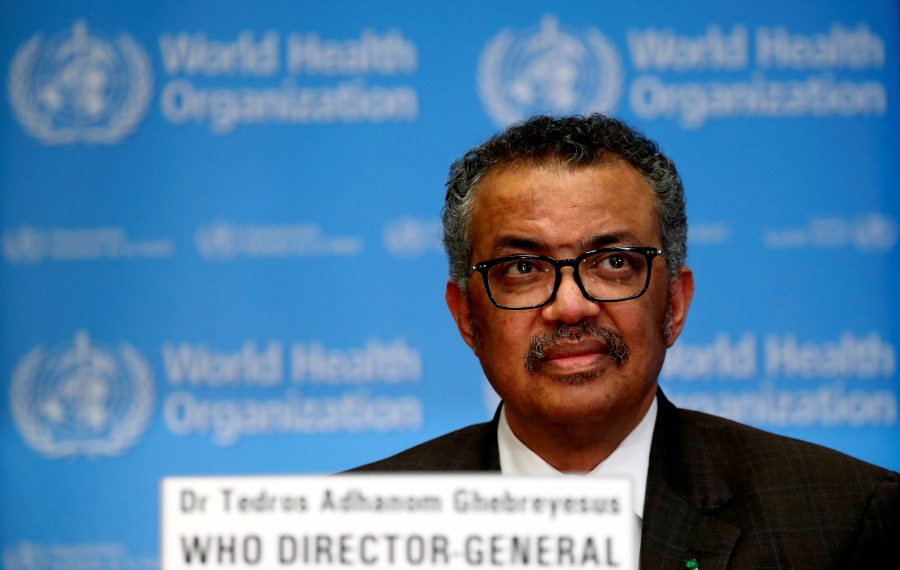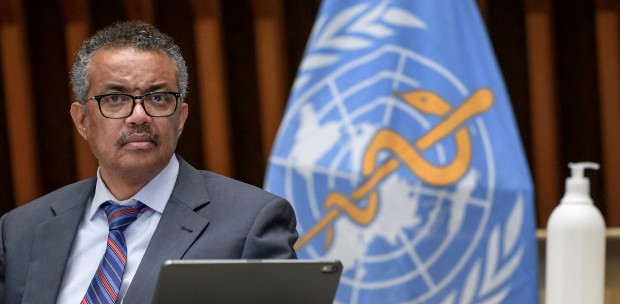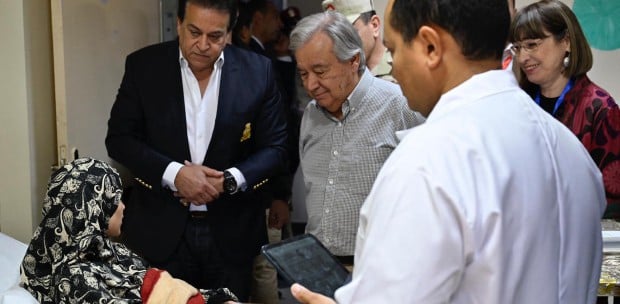UNITED NATIONS, New York: UN Member States on Wednesday pledged to prevent a recurrence of the devastating health and socioeconomic crises brought about by Covid-19 and enhance global readiness for future pandemics.
World Health Organisation (WHO) Director-General Dr Tedros Adhanom Ghebreyesus hailed this development as a "historic milestone," showcasing world leaders' dedication to strengthening international cooperation, coordination, governance, and investment in the race to avert the next pandemic.
"I welcome this commitment by world leaders to provide the political support and direction needed so that WHO, governments and all involved can protect people's health and take concrete steps towards investing in local capacities.
"This commitment will work towards ensuring equity and supporting the global emergency health architecture that the world needs," he said in his remarks at the High-level Meeting on Pandemic Prevention, Preparedness and Response during the UN General Assembly.
The political declaration, approved by Dennis Francis, President of the 78th United Nations General Assembly, resulted from negotiations led by Ambassadors Gilad Erdan of Israel and Omar Hilale of Morocco.
It underscored the pivotal role of WHO as the "directing and coordinating authority on international health."
It also stressed the importance of "committing further to sustainable financing that provides adequate and predictable funding to the WHO, enabling it to have the resources needed to fulfil its core functions."
"The lived experience of people who suffered through the Covid-19 pandemic must be at the forefront of our minds going forward in order to realise the clear direction provided by world leaders," said Dr Tedros.
"We must learn how to protect our communities better and to engage, inform and empower them to be part of the solution.
"We need to build stronger clinical care systems that can save lives."
Achieving these goals, he noted, requires concrete actions such as ensuring equitable access to medical countermeasures, sustainable financing, community engagement, and well-equipped health workers.
Dr Tedros also acknowledged the establishment of initiatives such as the Pandemic Fund, the WHO Hub for Pandemic and Epidemic Intelligence, the WHO BioHub for voluntary sharing of novel biological materials, and the mRNA vaccine technology transfer hub as steps towards building a safer world.
However, he emphasised that the political declaration called for further strengthening of the global health emergency architecture to better safeguard against a repeat of Covid-19.
Among the measures outlined in the political declaration are the need for Member States to conclude negotiations on a formal agreement on pandemic prevention, preparedness, and response, known as the Pandemic Accord, by May of the next year.
It also calls on States to address the negative physical and mental health impacts of health-related misinformation, disinformation, hate speech, and stigmatisation, particularly on social media platforms, in favour of public information campaigns based on scientific facts.
Member States also committed to bolstering health workforces, rapid response capacities, surveillance, and local manufacturing capabilities, ensuring countries can meet their own needs in preventing, preparing for, and responding to pandemics.
UN Secretary-General António Guterres recalled that the global response to Covid-19 showcased both human ingenuity and exposed society's shortcomings.
He said while rapid test and vaccines were created at lightning speed, there were also a lack of preparedness, disproportionate impacts on the world's poorest and vaccine hoarding by wealthy nations.
"We must not repeat the mistakes of the past when the next pandemic strikes – as we know it will – and other health threats emerge."
"We must improve surveillance of viruses, strengthen health systems, and ensure all countries have equitable access to vaccines, treatments, diagnostics and life-saving technologies.
"And we need a robust WHO with strengthened authority and financing," he added.
Meanwhile, the Chair of the WHO Standing Committee on Health Emergency Prevention, Preparedness, and Response (SCHEPPR), Tan Sri Dr Noor Hisham Abdullah, said the Covid-19 pandemic has taught the world that when health is at risk, everything is at risk.
"We hope for strong commitments from world leaders towards better health security," he told the New Straits Times.
Every nation, he said, needs to identify and map its response and healthcare networks.
"We need to build a coherent strategy for handling health emergencies working with all parties and create a network of networks in the health system in respective countries to be better prepared for tomorrow.
"We cannot have uncoordinated preparedness and response. Imagine 194 countries with 194 different responses."
NST specialist writer Tharanya Arumugam is a 2023 fellow of the United Nations Reham Al-Farra Memorial Journalism Fellowship.






